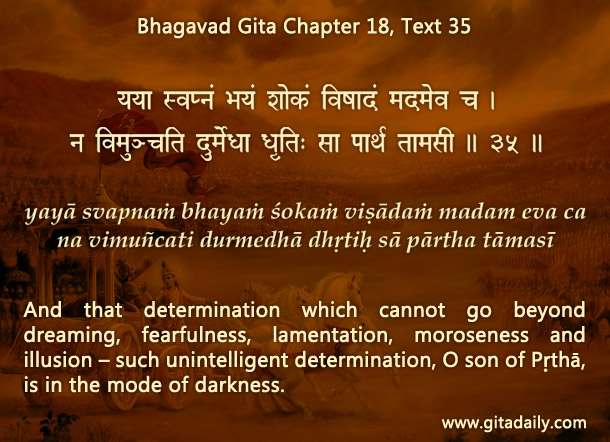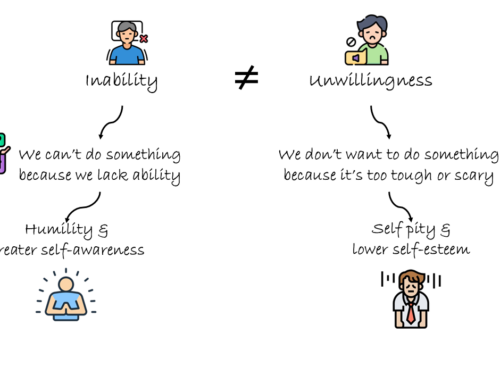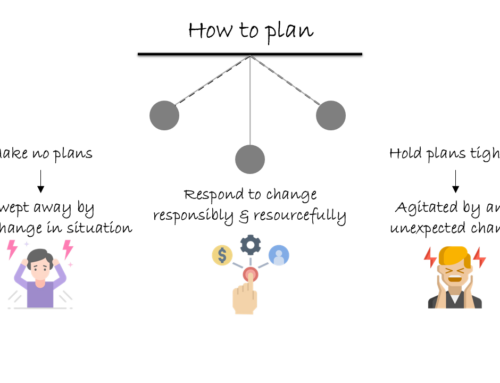How depressed desire leads to depression – Suppose someone riding a cycle pedals too fast and falls into a ditch. On getting up, they decide that pedaling caused their accident and refuse to pedal anymore. If cycling was their only means of locomotion, their misdiagnosis would leave them immobilized.
If we liken our life-journey to a cycle ride, then our desires are like our pedals. Sometimes, desires get us into a lot of trouble, as seen most graphically in addicts. To a lesser extent, we all can think of times when our desires led us into some metaphorical ditch.
If desires lead us into trouble, should we just get rid of all desires? Not really. Absence of desires doesn’t ensure well-being; far from it, it may even erode well-being. People who lack desire are prone to depression. Here’s how.
Without desire, we lose the impetus to do anything physically. Worse still, we also lose the impetus to choose among the many thoughts going on in our mind. And when we do nothing, things around us naturally deteriorate. That gives our mind further justification to think negatively, till we end up feeling depressed. Such self-defeating thinking, characterized by moroseness, typifies ignorance (Bhagavad-gita 18.35).
Pedaling needs to be regulated and directed, not stopped — and the same applies to desiring. Gita wisdom inspires us to direct our desires constructively by explaining how our life has profound meaning and value. And the Gita provides empowering spiritual practices that can enable us to control our desires, not be controlled by them. With our desires thus directed and regulated, we all can contribute toward creating a better future for ourselves and for our world at large.
One-sentence summary:
Dominance by desires can get us addicted, but the absence of desires can leave us depressed — learn to direct and regulate desire.
Think it over:
- How is the absence of desire problematic?
- How can Gita wisdom help us to manage desires effectively?
- Think of a desire whose dominance troubles you and a desire whose absence troubles you. How can you apply Gita wisdom to manage both those desires?
***
18.35: And that determination which cannot go beyond dreaming, fearfulness, lamentation, moroseness and illusion – such unintelligent determination, O son of Prutha, is in the mode of darkness.






Thank you very much for this article. Perfect analysis of wrong direction of being desireless. Thank you for your wonderful guidance through Gita daily.
Thanks for your apt comment; grateful to know that Gita daily is of service to you.
Thank you for your daily words of wisdom from the Gita. Makes my day!
Hare Krishna prabhuji. Dandvat pranam. This is so important topic. Desirelessness. We especially after coming into spiritual society and wisdom often think that we have to be and must be desireless. We should not desire anything. But that’s not Vaishnavism, that’s more like voidism. Krishna centered or purified desires can make us happy.
Good rhyming comparison between Vaishnavism and voidism. Thanks for your thoughtful comment.
Thank you very much for your kind thoughts and wonderful guidance of sharing the daily excerpts on the true essence from the Bhagwat Gita. Excellent explanations today on ‘desirelessness’ and how to steer our mind in the most beneficial direction by applYing these messages in our daily practical living.
Hare Krishna
Happy to be of service. Yes, desire is a much misunderstood topic about which the Gita offers invaluable insights.
Really nice explanation of how mind works when it get depressed and really nice solution how to come out of it and utilize our desires.
Thanks for your comment.
I am grateful to you Chaitanya Charan prabhu. Your gita daily messages, lectures on Mind, anxiety, BG, Mahabharat, so many other topics and podcasts on so many social problems are simply amazing and unparalleled. From the lectures, I can understand how much time you would have spent in reading so many books (in addition to SP books), authored by so many intellectuals world wide, to deliver so much valuable knowledge to the society. Your inspiration to cover so many topics, various metaphors and examples are awesome. By Lords & SP mercy, so much in depth knowledge on so many topics, you have gained. Again thank you for revealing all knowledge.
Thanks, Jyotishvara Madhava P, for your heartfelt appreciation. Yes, I am trying to do my small part in building as broad a bridge as possible between the Gita wisdom tradition and the contemporary cultural landscape.